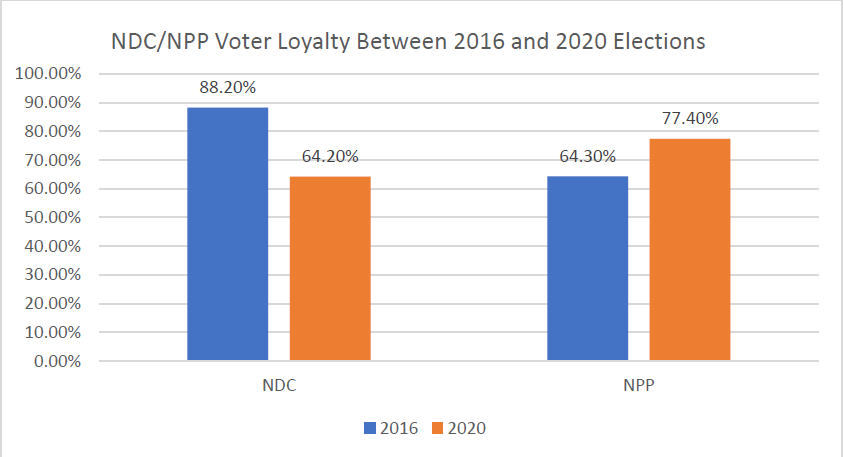
Election Survey 2020
Election 2020: Matching Development Priorities, Voter Expectations, and Voting Choices in Northern Ghana
Summary of Survey Findings
Background to Survey
- Peace and Development Outcomes of Historical Voting Patterns
- The December 2020 general elections are the eighth since the first for the 4th republic in 1992. Democratic electoral systems presume the electorate would make decisions that serve their enlightened self-interests. Accordingly, elections are supposed to be marketplaces of ideas where the electorate shop for and make electoral choices between political parties, policy and program packages, and the candidates they believe are well-positioned to deliver the electoral promises that advance the best interests of the voters. However, voting patterns and behaviors in some parts of the country do not seem to correlate with evidence of received development interventions as a result of electoral choices the constituencies, districts, and regions have made. Instead, elections have been largely rooted in ethno-political and regional blocks that betray and dogmatic allegiance to political parties or specific personalities running as candidates. In particular, the five regions of the north, collectively the poorest part of the country, have maintained voting patterns that predominantly favor one political party. On average, the NDC has won more than 70% of the valid votes cast for Presidential elections since 1992 and more than 50% of all parliamentary seats available in the then Northern, Upper East, and Upper West Regions. It’s lowest win rate for parliamentary seats was 58.1% of seats in the Northern Region and 54.5% for the Upper West in 2016. The Party’s worst performance was 61.5% of parliamentary seats won in the Upper East Region in 20081.
- Purpose of the Study
- This survey is part of IPD’s efforts to increase understanding of what influences the voting decisions of the electorate in northern Ghana. It aims to deepen the democratic culture for inclusive governance through support for policies and programs that promote active and informed citizens’ engagement in elections and the promotion of good governance, peace, and development at the community, local government, regional, and national levels within the five (5) northern regions of Ghana. As a pilot, it carries out a preliminary survey of knowledge, perceptions, attitudes, behaviors, and practices of persons of voting age who are natives of the five regions of the north to ascertain what factors influence their choice of political parties and candidates for the Presidency and Parliament when they vote.
- The findings will enable IPD to propose policy and program development guidance to help citizens of the north to recalibrate their voting practices to derive maximum development benefits from their electoral choices. The findings will enable political parties, community groups, civil society actors, among others to design and deliver civic, public, and voter education programs that promote informed citizen participation in elections in particular and, in general, development processes.
- Research Questions
- The core question that guided this research is: What is that makes the majority of voters in northern Ghana remain fixed on voting for candidates of particular political parties, irrespective of the level of development interventions they receive from the alternating rules of their parties – NDC
- Computed from Electoral results from the Electoral Commission of Ghana, 1992-2016 General elections.
- and NPP? Alternately put, What would it take for voters in the north to shift from the party and personality-based voting patterns to interest-based ones?
The subsidiary questions that guided the survey include, but are not limited to the following:
- What attributes attract voters in the north to vote for candidates of political parties?
- What performance capabilities and standards do voters use in judging the suitability of candidates for President and Parliament?
- To what extent do the manifestoes of political parties affect the voting decisions of the electorate in northern Ghana?
- What policies and programs are best placed to attract voters in the north to a particular candidate or political party?
- To what extent do chiefs in the north influence the voting decisions and behaviors of persons resident in their jurisdictions?
- To what extent does vote buying through the use of money and other goods exist and influence voting decisions and behavior.